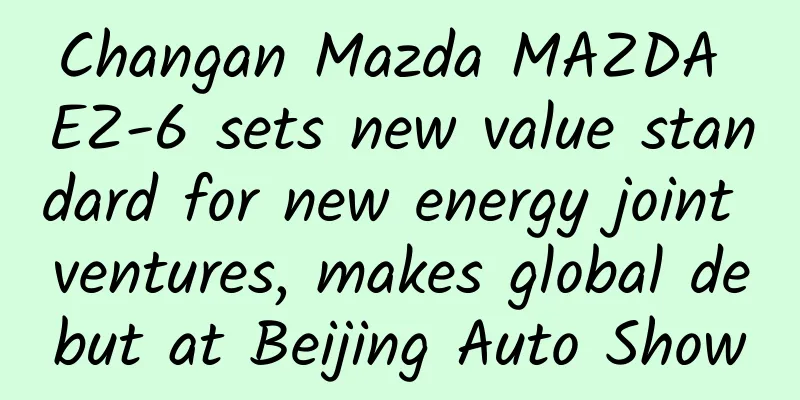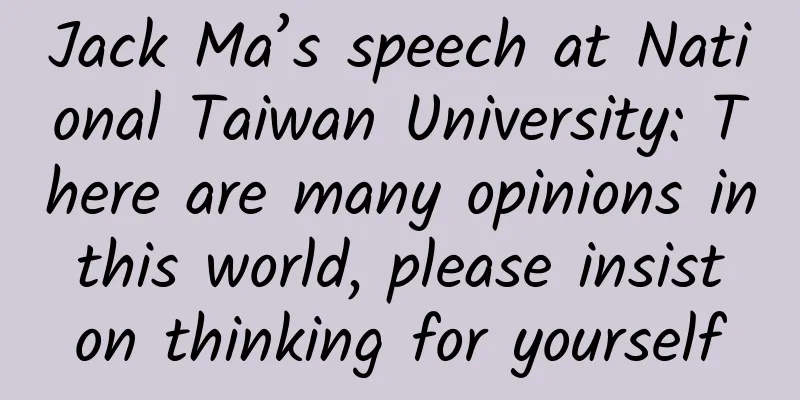Why is it said that home appliance companies investing in sports is equivalent to investing in real estate?

|
On January 14, Hisense announced that it would become the final sponsor of the 2016 European Cup. This is another home appliance-related company that has appeared on the list of partners of this year's top sports event, following General Electric, Samsung, Panasonic, Canon and Sharp. On January 15, LeTV, the company that owns Super TV, officially announced its investment in Beijing Guoan Football Club. Earlier, home appliance retailer Suning took over the Chinese Super League team Jiangsu Suning. There is no doubt that 2016 is a big year for sports, with the Olympics and the European Cup both coming up, the America's Cup coinciding with the centenary celebration, and various professional competitions such as tennis, F1 racing, golf, boxing, etc. bombarding in turn. It is not only the athletes and fans who are crazy about the big year of sports, but also these home appliance giants waving their checkbooks. As a commercial company, the reason why home appliance companies are so excited is probably not just because they expect the event to be exciting. What is the logic behind this? Leveraging the popularity of the event to open up the global market It is not just Chinese home appliance brands that are so crazy. Before entering the European market, Japanese and Korean home appliance brands also went through this stage. There is no need to say much about Japanese home appliance brands. For example, Korean brands, which are closer in time, have sponsored top European football events and related clubs, thereby quickly expanding their brand influence and achieving fruitful results. Take Samsung as an example. In order to open up the European market, it sponsored the Premier League team Chelsea at a cost of 54 million pounds for three years. Is this sky-high contract suitable for Samsung? Others do not know, but the fact is that three years later, Japanese tire brand Yokohama squeezed out Samsung with a higher price, and the appreciation speed was beyond the reach of even Chinese real estate companies. From this we can see that the market has a sharp eye for whether a business is cost-effective or not. Let's go back to the logic of Hisense sponsoring the European Cup. As a Chinese home appliance brand, Hisense's sales advantage of more than 8 million TVs per year is self-evident in China. What it needs now is to go abroad and prove its strength. In fact, Hisense has already experienced the huge dividends brought by sponsoring sports events in its strategy of going global. Data shows that after sponsoring many overseas events such as the F1 Red Bull Racing Team, NASCAR XFINITY Series and JGR Racing Team, the Australian Open and the Arena Stadium, Schalke 04 Football Club, Hisense's TV sales have soared, surpassing Sony last year and ranking among the top three in the world. Compared with relatively niche sports such as racing and tennis, football, as the world's number one sport, has greater market appeal. Take the European Cup as an example. According to statistics, the European Cup to be held in France in June this year is expected to have an average of 147 million viewers per live broadcast, with a cumulative audience of more than 6.6 billion. This number is unmatched by other events, and can even be compared with the Olympics and the World Cup. Hisense paid only money for this, but what it gets may be the entire European market or even the global market. Leveraging sports to build brand image According to IHS DisplaySearch data, as of 2015, the global penetration rate of smart TVs has exceeded 43%. In Western Europe, 45% of households own smart TVs, and 33% of household users plan to buy smart TVs in the next 12 months. It can be said that at the moment when traditional home appliances are evolving into smart appliances, whoever can establish a new brand image first will have greater market opportunities. High-density exposure to sports events can strengthen the brand image in all aspects. Top events cover a wider area and have a larger audience, so their influence cannot be underestimated. On the other hand, fans’ attitude towards sports events is inherently very emotional, and sponsors can use this to establish and instill their brand culture. Adidas once launched the slogan "Together in 2008, Nothing is Impossible" during the Beijing Olympics, and claimed that it had successfully completed a brand counterattack; Tencent put forward the slogan "On-site" at the London Olympics and used the concept of "Olympic social" to connect its own omni-media platform. In the long run, compared with pure marketing expenditures, companies' investment in branding often brings greater returns. According to Cheng Kaixun, vice president of Hisense Group, in the past year, Hisense's brand fee rate in overseas markets increased by 0.21 percentage points, which brought 40.8% of brand revenue. Investing in sports and popular sports events is indeed a profitable business. It is reported that Hisense's sponsorship of the European Cup this time costs more than 50 million US dollars. Therefore, some people think that Hisense has gone crazy, but judging from the future returns, Hisense must be secretly happy to win the qualification of top sponsor at this price. After all, if Yokohama Tire of Japan squeezes out Samsung to sponsor a team, it needs to pay 40 million pounds every year, which is equivalent to 50 million US dollars. Explore potential users through product experience With a broad mass base as support, top events naturally have considerable bargaining power. The fact that major video websites spent billions of RMB to buy out event copyrights in 2015 is a good example. Sponsorship rights are never cheap. According to the Financial Times, as early as four years ago, the sponsorship amount for a single Champions League season had reached 50 million euros. As we all know, the difference in influence between the Champions League and the European Cup is huge. Can clubs be compared with national teams? For a company, an investment can only be considered successful if it generates more sales growth than the advertising investment. The founder of Ogilvy once made such a statement: I know that half of my advertising expenses are wasted, but I don’t know which half. This sentence can be understood here as if there is not enough If the conversion rate is not high enough, the exposure itself does not have much meaning. How to convert viewers into users may be the second question that event sponsors should consider. Industry insiders said that sports marketing needs to return to the essence of everyone's participation and cannot stop at advertising. Brands and sports users should have high-frequency and efficient interactions. Lin Lan, vice president of Hisense Group, believes that if Chinese companies want to truly create world-renowned brands, they must rely on strength and technology. Smart advertisers always try to get their products directly involved in the competition process, turning the event into a product experience meeting. The cooperation between Chevrolet and NASCAR can be regarded as a classic case in this regard. Coincidentally, it is reported that Hisense, the sponsor of this European Cup, will also use its 4K TVs and 4G mobile phones in the services of this event, and its market prospects are promising. 2016 is not only a big year for sports, but also a big year for sports marketing. Holding the admission ticket in hand, sponsors can play this card well and make the sports industry achieve the same return rate as the real estate industry. This card will be played successfully. As a winner of Toutiao's Qingyun Plan and Baijiahao's Bai+ Plan, the 2019 Baidu Digital Author of the Year, the Baijiahao's Most Popular Author in the Technology Field, the 2019 Sogou Technology and Culture Author, and the 2021 Baijiahao Quarterly Influential Creator, he has won many awards, including the 2013 Sohu Best Industry Media Person, the 2015 China New Media Entrepreneurship Competition Beijing Third Place, the 2015 Guangmang Experience Award, the 2015 China New Media Entrepreneurship Competition Finals Third Place, and the 2018 Baidu Dynamic Annual Powerful Celebrity. |
<<: Less than 5% of 10,000 mobile games have been approved. Behind the chaos of mobile games
>>: What is it like to watch sex in VR? I guarantee you won’t want to watch 2D videos anymore!
Recommend
Financial Times: Alibaba IPO may be delayed
Beijing time, July 11 afternoon news, people fami...
Chen Yifeng's "Practical Textbook on Finding Dragon Points" A set of 8 pdf books on Finding Dragon Points can be downloaded from Baidu Cloud!
Chen Yifeng's "Practical Textbook on Fin...
Is autonomous driving equivalent to a frog driving a car? How far do smart cars have to go?
Self-driving cars are already a hot topic that ev...
Analysis of Lenovo's internationalization path: buy, buy, buy
Lenovo Group, led by Yang Yuanqing, has entered t...
Is counting so difficult? The brain also has "limits" to understanding numbers
For numbers greater than 4, the activation of dig...
Video promotion tips: A hit? Just 15 seconds is enough!
Why are more and more brands investing in short v...
How do experts analyze it? Take a look at these 5 detailed thoughts on B-side design
This article summarizes 5 B-side design considera...
To what extent will animals sacrifice for their fellows?
Edward Wilson, an American biologist and naturali...
2020, Marketing Returns to Rationality
If you had to use one word to describe the market...
The world's first AIMS telescope breaks through the difficulty of measuring the solar magnetic field
Reporters learned from the Qinghai Lenghu Astrono...
An electric mosquito swatter has several thousand volts of electricity, so why doesn’t it hurt people?
It is the hottest time of the summer. In addition...
Should I run through the airport or arrive 2 hours early? Economist: Arriving early is a waste of life
Today is the first day of the May Day holiday. I ...
How Web developers make games from "2048"
The past few weeks have been a long and crazy tim...
Guangdong bans electric vehicles
The "Guangzhou Non-Motor Vehicle and Motorcy...
Baofeng Technology's stock price has overdrawn 1 to 2 years of performance
If the stock price hits the daily limit again tod...









